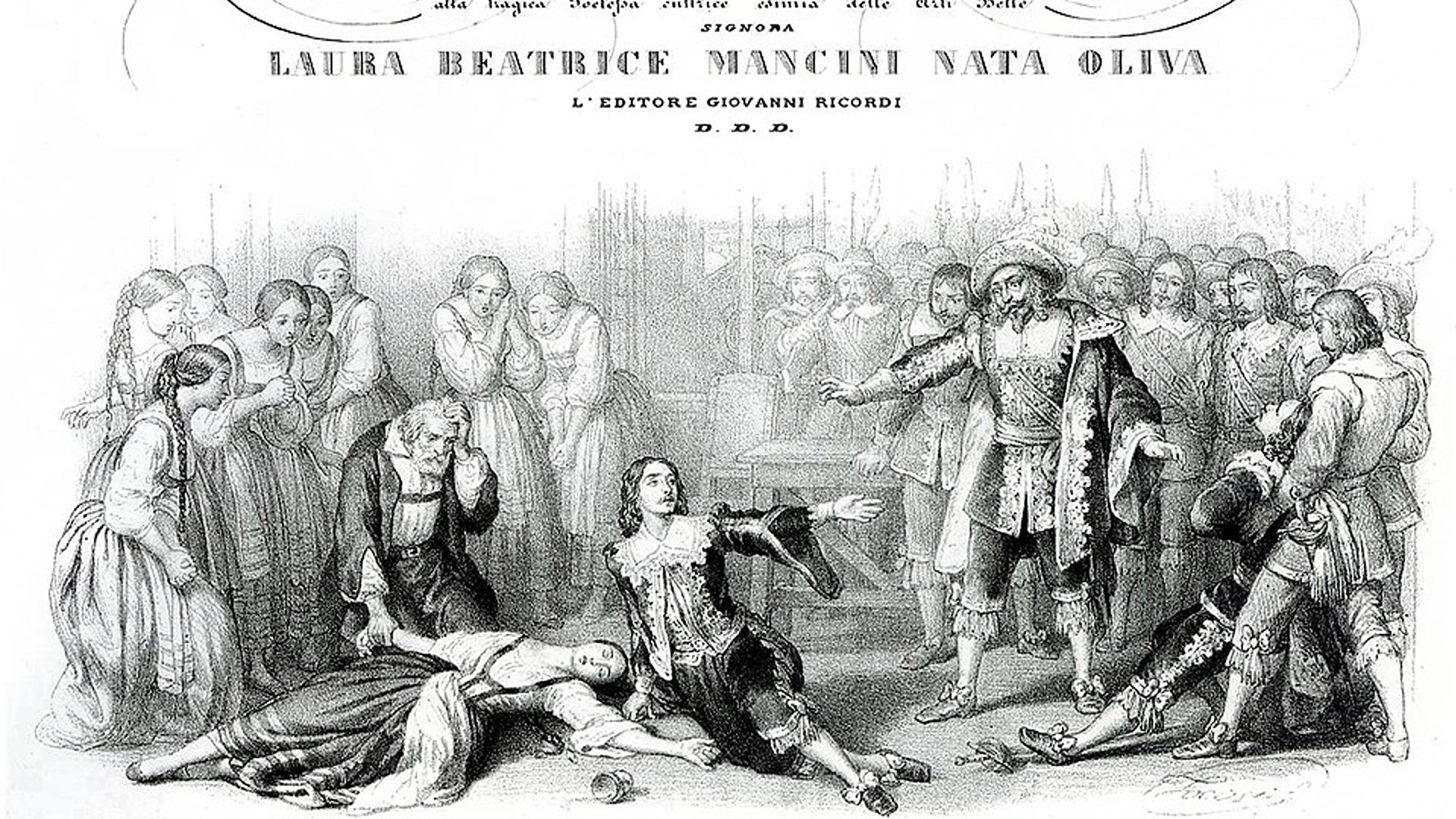Giuseppe Verdi’s 1849 opera, Luisa Miller, broke new ground.
With a tragic, convoluted story centering around love, betrayal, class struggle, jealous rivalry, and violence, it displayed an increased psychological depth. The orchestra played a greater dramatic role. The last of Verdi’s “middle period” operas, Luisa Miller set the stage for the composer’s celebrated later works, such as La traviata, Rigoletto, and Aida.
The Lyric Opera of Chicago provides the following brief summery:
Verdi’s sumptuously beautiful romantic drama tells the story of sweet, vulnerable Luisa, who loves Rodolfo, the son of a ruthless, unethical nobleman whom Luisa’s own father loathes. The young couple’s relationship leads to catastrophe in a drama that breathes passion and excitement.
In their full synopsis, which culminates in the deaths of Luisa, Rodolfo, and his rival Wurm, the Metropolitan opera titles the three acts respectively “Love, Intrigue, and Poison.”
Overture
The Overture begins with a sense of quiet anxiety. A throbbing accelerated heartbeat can be heard in the low strings. Then, the music explodes with a sense of terror and raw passion. At moments the dense inner voices of the strings shriek with anguish. Throughout the Overture, we are confronted with a single, unrelenting musical theme.
Tu puniscimi, O Signore (“Punish me, Oh Lord”)
As the curtain rises on Act II, Luisa learns that her father has been jailed for insulting Rodolfo’s father, Count Walter. The Count’s assistant, Wurm, appears and tells Luisa that the only way she can win her father’s release is to write a letter admitting that she sought Rodolfo for his wealth, and pledging herself to Wurm.
In this aria from the second act, Luisa laments her predicament. This powerful performance features the Spanish soprano Montserrat Caballé:
Quando le sere al placido chiaror d’un ciel stellato (“When at eventide, in the tranquil glimmer of a starry sky”)
After receiving the letter, the heartsick Rodolfo reflects on Luisa’s betrayal. Here is a recording featuring Luciano Pavarotti:
L’ara, o l’avello apprestami (“Prepare the altar or the tomb for me”)
In the Act II finale, the despairing Rodolfo expresses his willingness to accept death, and abandons himself to fate. This recording features Plácido Domingo and the Metropolitan Opera chorus.
Padre ricevi l’estremo addio (“Father, receive my last farewell”)
Out of revenge, Rodolfo marries Duchess Federica. After the wedding, he sneaks into the house of Miller, Luisa’s father, and pours poison into a water jug on the table. He asks Luisa if she really wrote the letter declaring her love for Wurm. When she replies that she did, Rodolfo drinks the poisoned water, and then invites Luisa to drink. Before she dies, Luisa reveals that she was coerced to write the letter.
In the final scene, Luisa bids farewell to her father. The anguished Rodolfo cries out, “Oh, forgive my sin.” Just before the curtain falls, as Luisa dies, Rodolfo plunges his sword into Wurm.
Recordings
- Verdi: Luisa Miller Overture, Claudio Abbado, London Symphony Orchestra Amazon
- Verdi: Luisa Miller, Montserrat Caballé, Luciano Pavarotti, Peter Maag, National Philharmonic Orchestra Amazon
- Verdi: Luisa Miller, Aprile Millo, Plácido Domingo, James Levine, Metropolitan Opera Orchestra Amazon
Featured Image: The death of Luisa from the first edition vocal score

